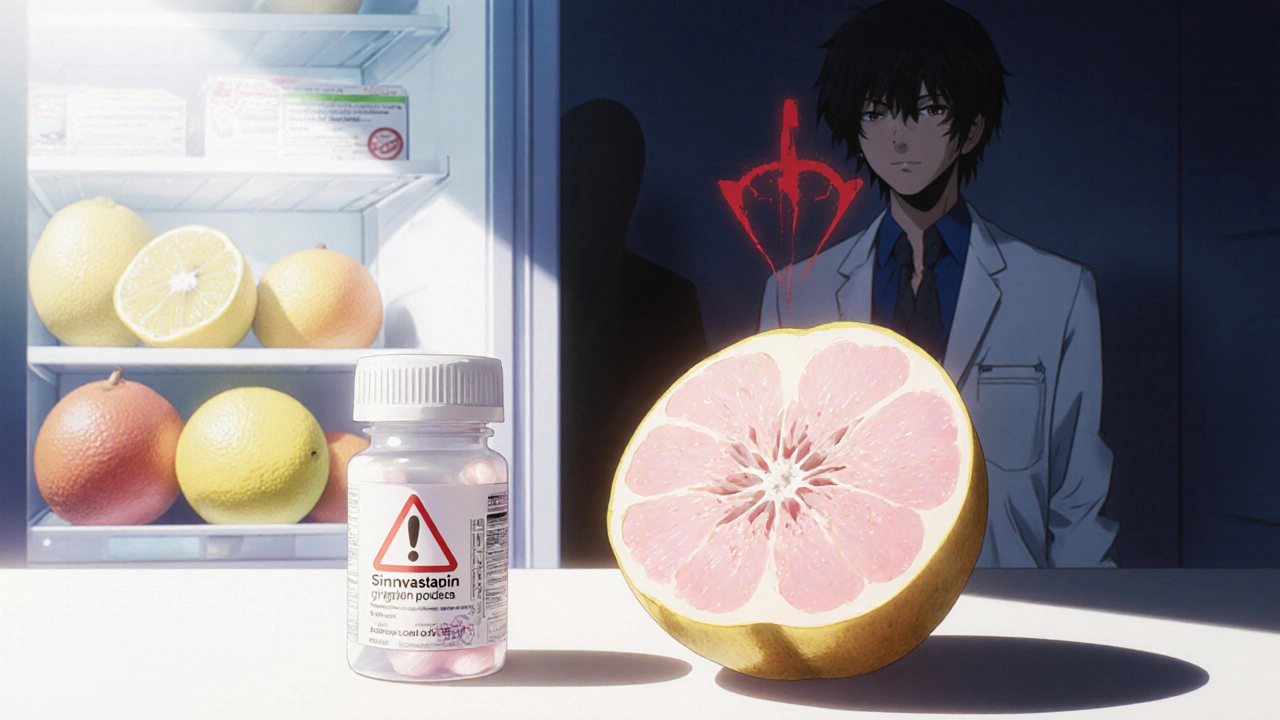Citrus Fruit Drug Interactions: What You Need to Know
When you take a pill, your body relies on enzymes—especially the CYP450 enzymes, a family of liver enzymes that break down over 90% of common medications. Also known as cytochrome P450 system, it acts like a gatekeeper, deciding how fast or slow your drugs get processed. But if you drink grapefruit juice, eat a pomelo, or even snack on Seville oranges, you’re accidentally slamming that gate shut. This isn’t just a myth—it’s a real, documented danger that can turn a safe dose into a toxic one.
These citrus fruit drug interactions, happen because compounds in citrus block CYP3A4, the main enzyme that metabolizes dozens of prescription drugs. The result? Your body can’t break down the medication fast enough. Levels build up. Side effects spike. Blood pressure drops too low. Cholesterol meds turn into liver stress bombs. Heart rhythm drugs trigger dangerous arrhythmias. The FDA has issued warnings for over 85 medications affected by this. Statins like simvastatin? Risk of muscle damage. Blood pressure pills like amlodipine? Dangerously low pressure. Anti-anxiety drugs like buspirone? Over-sedation. Even some cancer drugs and immunosuppressants are on the list. And it’s not just grapefruit—pomelo, bitter orange, and some tangelos can do the same thing. Regular oranges and lemons? Usually safe. But if you’re on meds, don’t assume all citrus is harmless.
This isn’t just about juice. It’s about timing, dosage, and individual metabolism. One glass of grapefruit juice can mess with your meds for up to 72 hours. Even if you take your pill at night and drink juice in the morning, the enzyme blockage still lingers. Older adults and people with liver issues are at higher risk. And here’s the kicker: you won’t feel it happening until it’s too late. No warning signs. No immediate reaction. Just a slow, silent buildup that can land you in the ER.
What you’ll find below are real, practical posts that dig into how these interactions work, which drugs are most at risk, and how to avoid them without ditching your favorite fruits entirely. You’ll see how CYP450 enzyme interactions, the hidden battlefield inside your liver where drugs compete for space and timing affect everything from heart pills to antidepressants. You’ll learn how to spot the red flags, what to ask your pharmacist, and how to read your medication guides for hidden citrus warnings. This isn’t theoretical. These are the exact issues covered in posts about statin interactions, QT prolongation risks, and medication safety in emergencies. If you’re on any regular prescription, this matters. Don’t guess. Don’t assume. Know what’s in your juice—and what it’s doing to your pills.
Citrus Fruits Beyond Grapefruit: Pomelo and Seville Orange Effects on Drugs
Pomelo and Seville orange can be just as dangerous as grapefruit when taken with medications like statins and immunosuppressants. Learn how these citrus fruits interfere with drug metabolism and what you need to do to stay safe.

